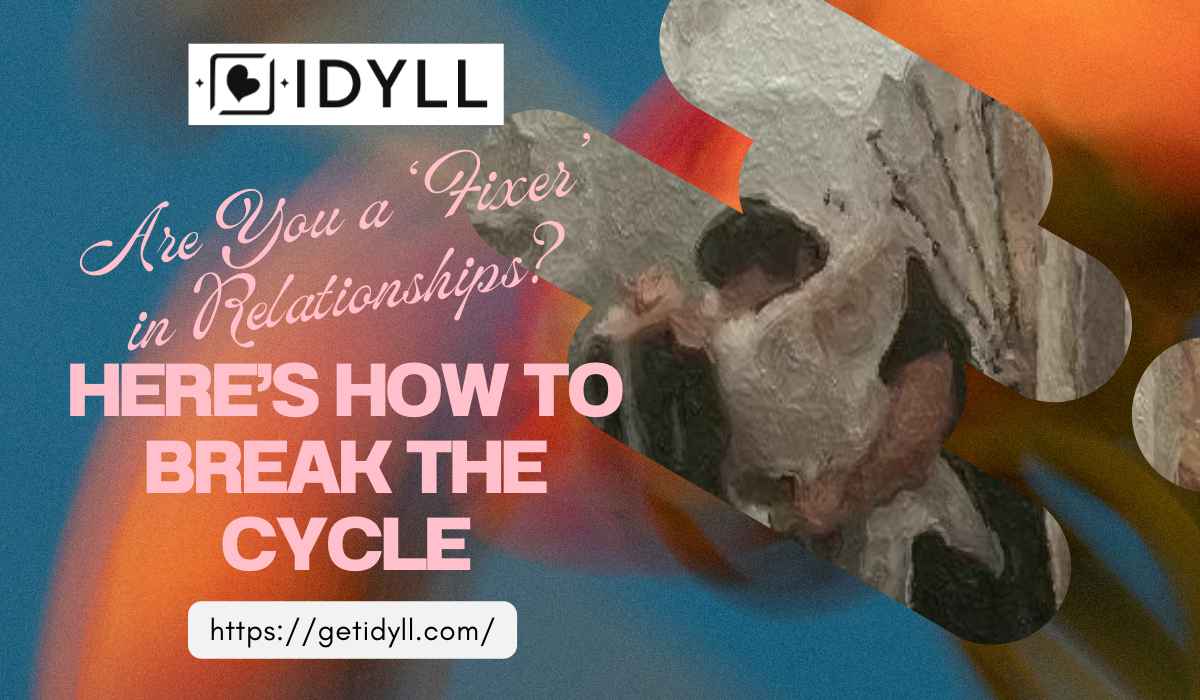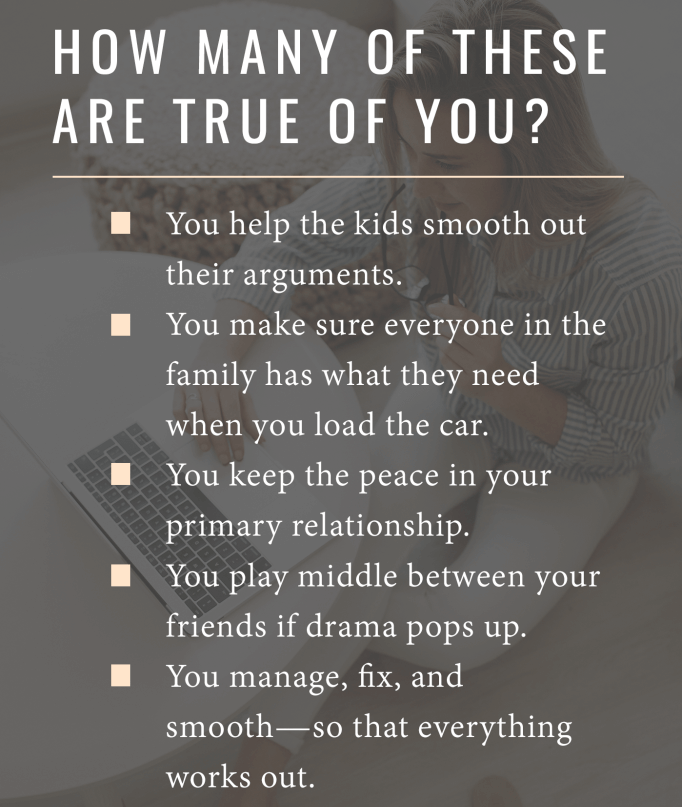Are You a ‘Fixer’ in Relationships? Here’s How to Break the Cycle
Understanding the “fixer” role in relationships can reveal patterns and transform the way you handle disagreements.

Being in a relationship can be both fulfilling and demanding. It’s natural to want to help our partners, but sometimes we end up taking on a “fixer” role. Fixers often feel responsible for solving disagreements, making decisions, and sometimes even “fixing” their partner’s perceived flaws.
While the intention might be good, this role can create imbalance, leading to miscommunication and resentment. Noticing and understanding this pattern allows you to build a relationship that’s based on mutual respect and understanding.
Table Of Contents:
If you’ve ever felt too responsible for fixing problems or leading conflict resolution, you’re not alone. Many people slip into the fixer role from a sincere desire to help. But when you break this cycle, you’ll likely find a healthier, more balanced partnership that benefits you and your relationship.

The Fixer Mindset
A Pattern Rooted in Avoiding Conflict
The fixer mentality often comes from a place of discomfort with unresolved questions or tension. Fixers try to jump in with quick solutions as a way to avoid disagreement, sometimes without fully listening to their partner. This can create an unintentional cycle where one partner feels ignored, while the other feels overwhelmed with responsibility.
Signs of the Fixer Mindset:
- Taking Emotional Responsibility:
Feeling it’s your job to make your partner happy, even at the expense of your own feelings. - Avoiding Conflict:
Steering away from confrontation, sometimes neglecting your own needs or opinions. - Controlling Disagreements:
A strong urge to drive the conversation, often by giving advice or solutions.
Imagine a two-player game where only one player takes all the turns. Not only does it make the game less enjoyable, but both players end up feeling out of sync. Relationships, too, need equal participation for genuine connection.

How The Fixer Impacts Relationships
Understanding the Impact of Being a Fixer on Relationships
Constantly playing the fixer role can lead to emotional strain for both partners. While it may feel good to help, this behavior can affect both people in unspoken ways. Fixers often feel drained or disappointed when their efforts don’t yield the outcomes they expected.
Effects on Your Partner:
- Feeling Ignored:
Your partner might feel their opinions aren’t valued. - Resentment Toward Control:
Being “fixed” can feel limiting, especially if they want to approach issues in their own way. - Missed Growth Opportunities:
Without space to navigate challenges, they might lose valuable chances for personal growth.
Effects on the Fixer:
- Emotional Exhaustion:
Constantly solving problems can be draining. - Neglected Needs:
Putting your partner’s needs first may cause you to overlook your own. - Disappointment:
Fixers often feel unappreciated when their efforts don’t bring the results they hoped for.

Step Outside
Practice Active Listening and Embrace Disagreement
One of the best ways to shift from the fixer mentality is to practice active listening. This means allowing your partner to share their thoughts and feelings without interrupting or offering solutions. Disagreement is a normal part of relationships that can foster growth and connection.
Steps for Practicing Active Listening:
- Pause and Reflect:
Take a moment before responding to avoid jumping into “solution” mode. - Reflect Back:
Repeat or paraphrase what your partner has said to show understanding. - Ask Questions:
Instead of providing answers, ask open-ended questions that allow your partner to express themselves.
Active listening helps partners feel heard and valued, strengthening emotional connection and trust.
If your partner says they feel stressed about work, don’t jump in to fix it. Instead, say something like, “That sounds overwhelming. Do you want to talk about it?” This approach shows empathy without trying to solve the issue.
Listen to this podcast to understand how to deal with the Fixer Mindset better!

Boundaries In Disagreement
Setting Healthy Boundaries Around Disagreements and Problem-Solving
Establishing boundaries can help you step away from the fixer role. Boundaries don’t mean withdrawing support; rather, they balance care with respect for each partner’s autonomy. When boundaries are clear, both partners understand their roles within the relationship.
Guidelines for Setting Boundaries:
- Define Roles:
Talk about the roles you each want in the relationship. - Prioritize Self-Care:
Recognize your own needs and take a break if you’re feeling overwhelmed. - Agree on Conflict Management:
Set a shared approach to handling disagreements.
Why Boundaries Matter:
Boundaries create an environment where disagreements are approached as a team effort instead of a fixer’s task. Each partner is empowered to voice their thoughts and needs.

Time To Stop!
Steps to Take to Stop Being a Fixer
Moving away from the fixer mindset takes time, but each small step can make a difference. Here are some practical actions to help you shift your approach:
- Identify Triggers:
Think about situations that prompt your urge to “fix.” Recognizing these patterns helps you handle future interactions. - Express Empathy, Not Solutions:
Acknowledge your partner’s feelings without jumping to solutions. - Practice Self-Reflection:
Ask yourself why you feel the need to solve your partner’s problems. This desire often stems from our own discomfort with unresolved issues. - Encourage Independence:
Allow your partner to work through challenges in their own way. - Celebrate Progress Together:
Recognize small wins when you both navigate a disagreement without trying to “fix” things.
Want to learn how to stop being a FIXER? Give this podcast a try to get some tips!

Adopt a Growth-Oriented Approach
Recognize That Disagreements Foster Personal and Relational Growth
Shifting away from the fixer role doesn’t mean avoiding support, but rather adopting a growth-focused mindset. Recognizing that disagreements are a valuable part of relationships can encourage openness, acceptance, and resilience, allowing both partners to grow together.
Cultivating a Growth Mindset:
- See Disagreement as an Opportunity:
Every disagreement offers lessons in communication, patience, and empathy. - Support Autonomy:
Encourage your partner’s independence without taking over. - Celebrate Small Wins:
Acknowledge each other’s progress in navigating conflicts.

Conclusion
Building Healthier, More Balanced Relationships
Letting go of the urge to “fix” every issue and instead embracing the growth that disagreements can bring allows for a more balanced relationship. When both partners feel heard and respected, they create a partnership that’s supportive, connected, and resilient. By fostering a dynamic where each person contributes, the relationship becomes stronger and builds trust over time.
Rather than rushing to solve every problem, allow yourself to appreciate the growth that comes from navigating challenges together. This approach can build trust, transparency, and room for both individuals to thrive.
Listening to understand, not to fix, can be the most powerful support you offer in any relationship.
For a space where you can connect with people who value individuality and mutual support, consider Idyll. Idyll is designed for those seeking relationships based on respect, personal growth, and genuine connection.


